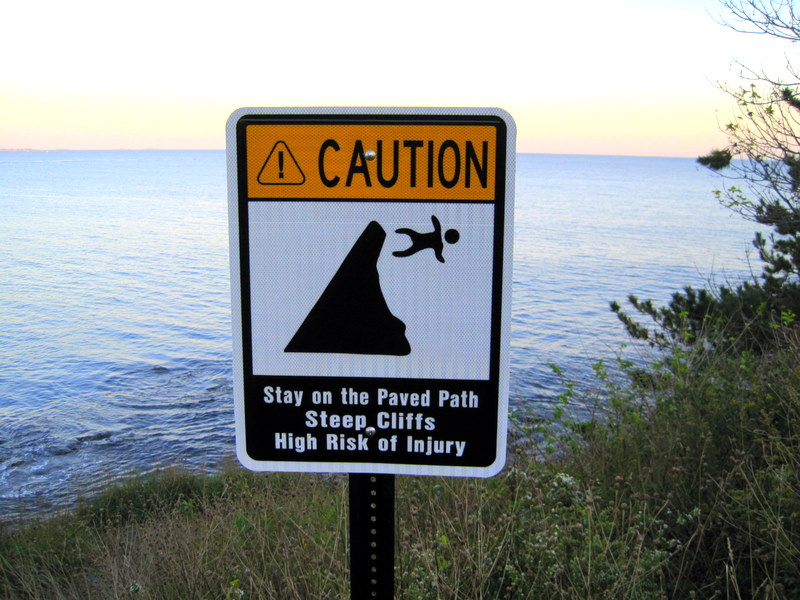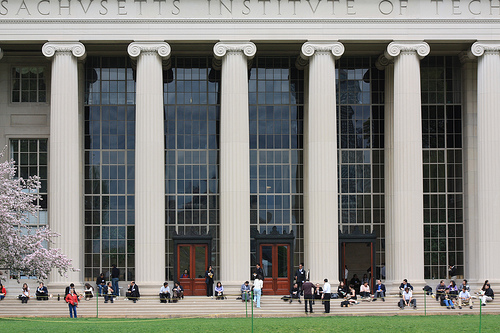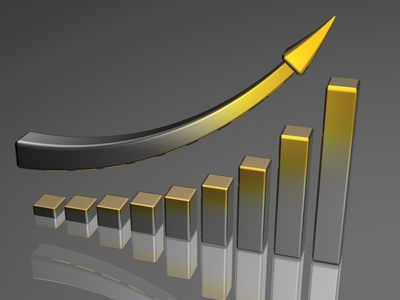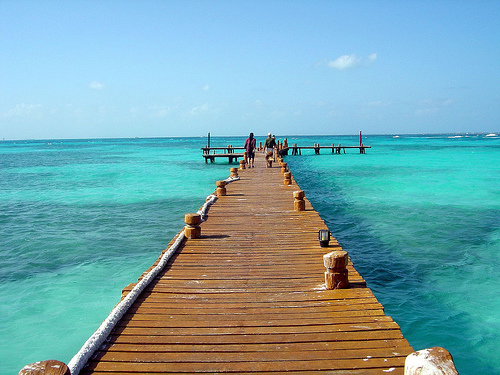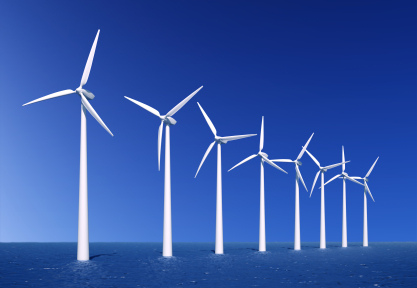 We’ve been hearing about the fiscal cliff a lot lately, about the risk of falling over the edge by failing to reach a political agreement, triggering automatic tax increases and spending cuts by theUSgoverment. It sounds like we’re about to sail off the edge of the world, a new end of the world since the last one failed to materialize. Personally, I think we’d be better off with less political theater and more good old-fashioned political compromise, the messy but effective work of legislating. But for all of the drama, I’m wondering why we worry so much about the fiscal cliff and government debt while we do our collective best to ignore a bigger issue – the Eco Cliff we are sailing toward, and our continued environmental debt.
We’ve been hearing about the fiscal cliff a lot lately, about the risk of falling over the edge by failing to reach a political agreement, triggering automatic tax increases and spending cuts by theUSgoverment. It sounds like we’re about to sail off the edge of the world, a new end of the world since the last one failed to materialize. Personally, I think we’d be better off with less political theater and more good old-fashioned political compromise, the messy but effective work of legislating. But for all of the drama, I’m wondering why we worry so much about the fiscal cliff and government debt while we do our collective best to ignore a bigger issue – the Eco Cliff we are sailing toward, and our continued environmental debt.
Don’t get me wrong – I think that government, like all of us, can’t go forever spending far more than it makes. It might work for a short time, and probably even makes sense at times, but a lot of us have learned from personal experience that this sort of thing can’t go on forever. Maybe that’s why government debt and the fiscal cliff stir up such strong feelings. People don’t like the idea of leaving this debt for themselves and their children to clean up for many years to come, having learned for themselves how badly this can go. That’s an honorable sentiment; we should care not just about today, but about the type of world that we create over the long run for ourselves, our kids and their kids.
The part that puzzles me though is why we worry so much about our financial debt and the burden this will leave for our children, while ignoring our environmental debt. We are consuming resources far faster than our planet can supply them. Our water resources, climate, agricultural productivity, fisheries, and many other resources our planet supplies for us are being depleted at an ever increasing rate, drawing down the reserves that we depend on to survive. The value of these eco-services provided by our planet has been estimated by ecological economists at $33 trillion annually, far greater than the value of our human economy, as described in Deep Economy by Bill McKibben. The impact on our children and their children of damaging the natural economy, drawing down our reserves to dangerously low levels, could hardly be greater. Nicholas Stern, former Chief Economist of the World Bank, estimated that the impact of climate change on the world economy could be a drag as great as 20% ofGDP, for example, through dramatic changes like agricultural losses, droughts, severe storms, and rising sea levels.
There are fears that if we went over the fiscal cliff and the US Government did absolutely nothing to avert it, we could trigger a new recession, hard on the heels of the last one. To put things in perspective, during the Great Recession in recent years theUSlost about 5% of GDP. That would not be a good thing, but it helps us to see that the Eco-Cliff deserves our attention as well, urgently. Failure to deal with the Eco-Cliff will hurt not just our economy, but the lives of billions around the globe. Sailing over the debt cliff would be readily fixed with a bit of legislative work, which is a challenge these days but not impossible. Sailing over the Eco-Cliff on the other hand could be an irreversible step into a new world we can scarcely imagine.
People everywhere are increasingly aware of our environmental impact now and in the future, but it tends not to attract the headline urgency that the fiscal cliff does even if the long term impact could hardly be greater. Money and financial debt seems to be a more immediate and concrete concern than the environment at present, pushing environmental concerns to the background. Climate change was almost not mentioned at all in the recentUSpresidential elections, for example. The reasons for this may lie in our psychology and how our minds tend to see risks or not see them. The solutions may lie in a better understanding of the psychology of risk as well.
The tendency to push environmental issues to the background comes naturally to most of us in the world we live in today. Most people feel themselves removed from nature, living in cities where money seems more real than nature. It’s understandable. Jobs and mortgages are a bigger worry for most people than polar bears, which is how the discussion often seems to be presented. Framing the discussion this way is not likely to mobilize people to address the Eco-Cliff.
A big problem with environmental risks is that even if people agree these problems are important, they don’t see them as urgent. Environmental risks like climate change, pollution, or habitat loss, and resource depletion can take years and decades to reach the boiling point, and we tend not to react to slow risks that grow over a long period of time. It can be easier to deny them, and we want to deny these risks to our world if possible, to exclude the anxiety that such threats can generate and maintain the basic belief that things are going to be okay.
In addition to denial, we tend to put things off actions on problems like this until later. If we feel like something needs to be taken care of immediately, we will. Otherwise, if it’s hard to deal with, requiring a consistent effort from many people around the world, asking that we pay more now for an eventual benefit down the road, it’s easy to put action off for later, or never.
One solution is to wait for a crisis that is so shocking that it jolts us into action. When a river catches fire, like theCuyahogaRiverdid in 1969, it can shock us into taking immediate action, enacting the Clean Water Act in this case and the growth of the environmental movement. HurricaneSandywas dramatic enough to catch our attention, and storms like this are increasingly likely with climate change. More and more people are seeing the changes in our world with their own eyes.
I think the reason we see and hear so much about the fiscal cliff is because people know that a sense of drama creates urgency, and urgency creates action. When the current political crisis of the fiscal cliff passes, as it surely will, then perhaps we will eventually turn on our focus on the growing urgency of the Eco-Cliff that we are moving toward. Eventually it will be dealt with. The question is how.
Glenn Croston is the author of “75 Green Businesses”, “The Real Story of Risk”, and “Gifts from the Train Station”.

